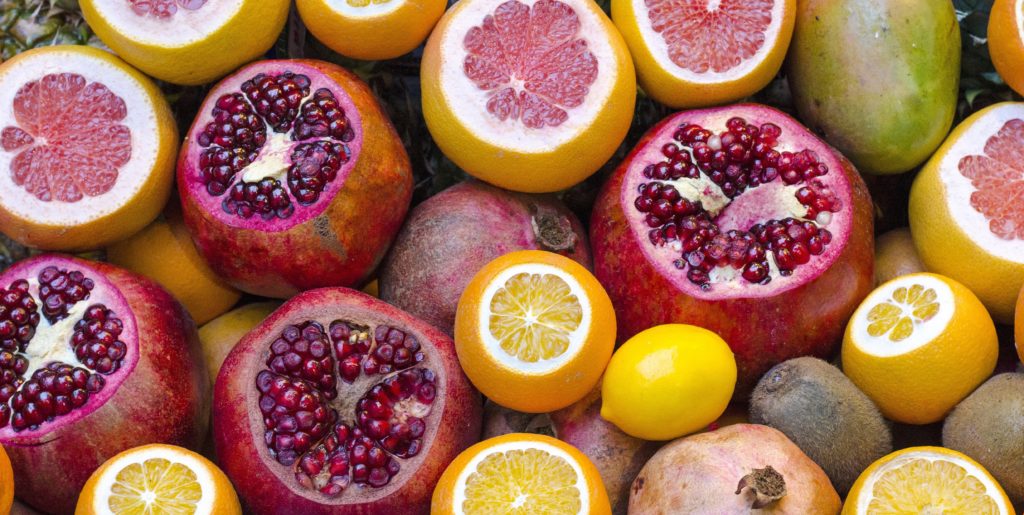Bone & Joint Health
Why are antioxidants important for joint health?
We have all heard the term antioxidants before. We may be certain we know what they are, what they do, and where they come from. However, most people don’t know about the role antioxidants play in keeping our joints healthy. Here are just a few things you probably didn’t know about antioxidants.
1- How antioxidants work
Inside the body, there are millions of chemical reactions going on at the molecular level. These reactions allow us to breathe, eat, move, and function each day. When these chemical reactions occur, sometimes oxygen molecules are used. If so, tiny particles called free radicals are formed. The body doesn’t like free radicals because once formed, they can start a chain reaction, like dominoes. When this happens, they may interfere with important structures like DNA, possibly leading to DNA damage. Because free radicals can be harmful, the body likes to get rid of them as quickly as possible1. Our body wants to stop the chain reaction from happening in the first place. It does this by using antioxidants to combat free radicals. That’s why they’re so important—antioxidants get rid of harmful free radicals.
As mentioned, free radicals can do a lot of damage to many different functions in our bodies. Free radicals can cause cartilage damage—such damage can cause joint-related issues. Antioxidants can help reduce that cartilage damage, thereby reducing pain and inflammation2,3.
When it comes to joint inflammation and arthritis, it is thought that the same proteins that cause pain and inflammation are also responsible for generating free radicals4. When scientists examine the blood and joint fluid of arthritis patients, they’ve found increased free radical activity and lower levels of antioxidants such as vitamins C and E, beta-carotene, and selenium4.
Shop Forte Joint Support Supplement
2- Where can I find antioxidants?
Antioxidants are found in foods that contain vitamins A, C, and E and selenium. The best food sources of vitamin C are
- citrus fruit,
- cantaloupe,
- mango,
- strawberries,
- broccoli,
- cauliflower,
- and red peppers.
Vitamin E-rich foods include
- wheat germ,
- nuts,
- seeds,
- whole grains, and
- kale4.
Selenium can be found in mushrooms, pasta, eggs, rice, and some dairy products.
Although the best way to get antioxidants is directly from food, we all lead busy lives. Sometimes that means not always being able to stick to a well-balanced diet. Therefore, dietary supplements are a great way to bridge the gap to ensure that you get all the vitamins, minerals, and antioxidants that you need.
Shop Forte Amino Acid Supplement
3- Don’t forget about the Mediterranean diet
The Mediterranean diet is well-known for being healthy and high in vegetables, olive oils, and omega-3 fatty acids. It is also thought to help reduce joint pain and inflammation in the body. Unsurprisingly, the diet is known to be high in antioxidants. This may be part of the reason for its success in some with arthritis. Adopting a Mediterranean diet or even parts of it is always a great idea for joint relief.
4- Not all antioxidants are created equal
It would be great if we could get all our antioxidants simply by consuming just vitamin C or vitamin A or selenium. It turns out that some antioxidants excel at fighting certain types of free radicals while others are effective only in specific parts of a cell5. It’s important to get a good mix of fruits and vegetables in your diet to help your joint health. A 2006 study carried out by researchers at Colorado State University found that people who ate the widest variety of fruits and vegetables had the most DNA protection5.
Now that you know a little more about antioxidants and their role in joint health, be sure to incorporate more into your daily diet. Also, consider joint supplements to get that extra boost of antioxidants that you need. If you suffer from osteoarthritis, other types of arthritis, or other joint diseases, your diet may not be able to give you everything you need.
1- Medline Plus. Antioxidants. https://medlineplus.gov/antioxidants.html
2- Kurz B, Jost Be, Schünke M. Dietary vitamins and selenium diminish the development of mechanically induce osteoarthritis and increase the expression of antioxidative enzymes in the knee joint in STR/1N mice. Osteoarthritis Cartilage 2002;10:119-126.
3- Wang Y, et al. E ect of antioxidants on knee cartilage and bone in healthy, middle-aged participants: a cross-sectional study. Arthritis Res Ther 2007;9: R66.
4- The Globe and Mail. Soothe your aching joints with a healthy dose of antioxidants. Leslie Beck. Sep. 30, 2009. http://www.theglobeandmail.com/life/health-and-fitness/soothe-your-aching-joints-with-a-healthy-dose-of-antioxidants/article790760/
5- NBC news. 5 things you need to know about antioxidants. http://www.nbcnews.com/id/38222254/ns/health-diet_and_nutrition/t/things-you-need-know-about-antioxidants/#.WHbkE4grK00


